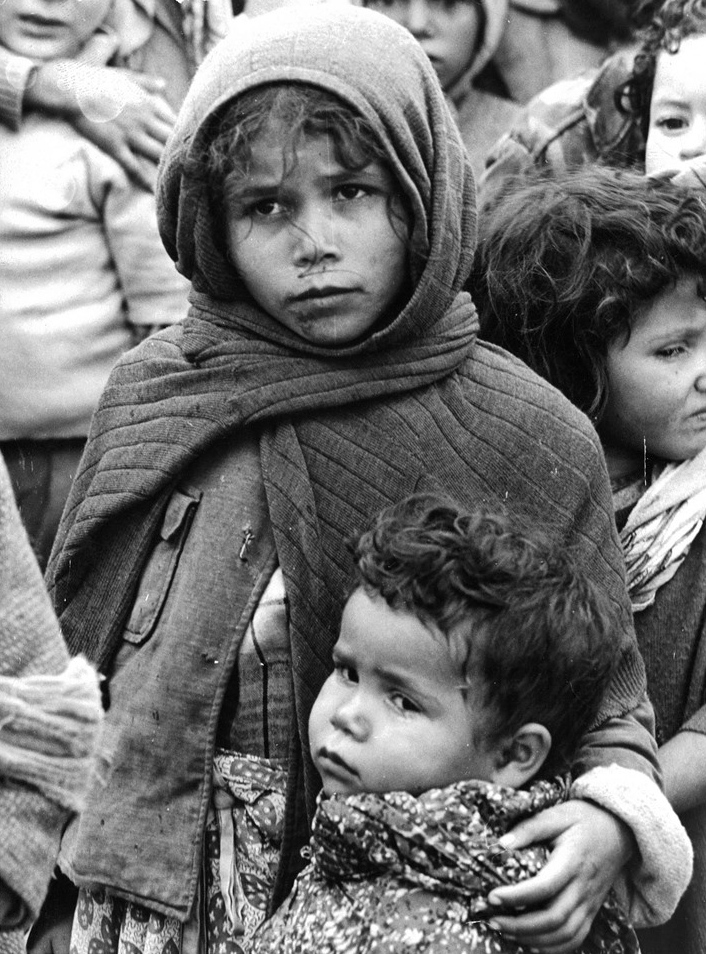|
Full Orchestra
String Orchestra
Wind Ensemble
Vocal
Chamber
Solo Instrumental
|
 Conflict and cataclysm pervade all of human history. We see it in continuous war, violence, oppression, and natural disasters around the globe, and we see it when helpless people are displaced, fleeing from their homeland to seek refuge somewhere else. This piece is about the most innocent of those who seek to escape from cruelty or disaster - the millions of child refugees whose lives are turned upside down at the most sensitive moment.
Conflict and cataclysm pervade all of human history. We see it in continuous war, violence, oppression, and natural disasters around the globe, and we see it when helpless people are displaced, fleeing from their homeland to seek refuge somewhere else. This piece is about the most innocent of those who seek to escape from cruelty or disaster - the millions of child refugees whose lives are turned upside down at the most sensitive moment.
When in times of difficulty, we seek comfort from anywhere we can find it. Music, especially folk songs, can be extremely comforting, allowing one to reminisce about their childhood and the presence of family and friends. This concerto is based on three children's folk songs from cultures that have had refugee crises in the recent past. You'll hear a nursery rhyme common to Venezuela and a number of other Latin American countries, Palomita Blanca, or Little White Dove, which has lyrics about the power of love for a young baby. I also quote a Korean folk song titled Spring in My Hometown that is about the singer's memories of how beautiful their hometown was and their longing for when they played there as a child. This song became extra meaningful after the Korean war divided the country into two and forced millions of Koreans to move either to the north or south, wrenching them from their homes. Finally, the concerto quotes an Afghan folk song about feeling the pain of separation. It is a setting of poetry by Rumi, a 13th century Persian poet.
The music begins with an ominous bass note and drum roll that repeats many times, signifying that the protagonist, represented by the solo organ part, is in the midst of an unnamed and terrifying conflict. The soloist plays fragments of Palomita Blanca, as if trying to remember how it goes, sometimes succeeding in finding one more note than the last time. The music builds to a breaking point, leaving the soloist frantically playing very quick and restless passagework. Fragments of Palomita Blanca have now been transformed into angry outbursts from the orchestra, surrounding the soloist with terror. First heard in the pedals is a small part of Spring in My Hometown, but it is contorted and militaristic-sounding.
After the music settles on a low organ pedal, a muted horn plays the first phrase of the Afghan folk song, leading the music to a calmer, but still unsettled, place. The soloist and orchestra take turns searching for the Venezuelan and Korean folk songs, but suddenly the violence from earlier returns and, panicked, the frantic rushing of notes in the organ also returns. When the dust settles again, the soloist finally states the entirety of the Rumi folk song, surrounded by a tense shimmer of harmony from the strings.
As the protagonist has now escaped the conflict and is searching for a new sense of home, more and more of Spring of My Hometown is heard. No longer march-like and percussive, it is finally harmonized richly. The soloist, taking inspiration from this new musical discovery, begins to bounce around playfully. The ominous thunder from the opening of the piece tries to interrupt a few times, but to no avail, while the solo organ returns repeatedly to the folk song, finally able to find comfort in a new home.
Refuge(e) was commissioned by Christine Clewell and the Indiana University of Pennsylvania Symphony Orchestra with support from the Edward R. Sims Distinguished Artists Fund, and premiered on March 3, 2023.
Duration: ca. 13'
Instrumentation:
- Solo Organ
- 1 Flute, 1 Oboe, 1 Clarinet, 1 Bassoon
- 1 French Horn, 1 Trumpet in C, 1 Trombone, 1 Tuba
- Timpani + 1 Percussion
- Strings
Percussion required:
- Bass Drum, Snare Drum, Suspended Cymbal, Glockenspiel, Tam-tam
|

